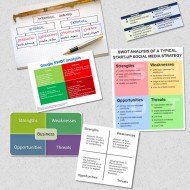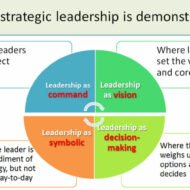Posted by Managementguru in Business Management, How To, Project Management, Startups, Strategy
on Nov 17th, 2014 | 0 comments

Startup Success Secret – Know your weaknesses “Don’t be a lone wolf. Lean on the experience and smarts of your teammates, investors, and mentors to help solve the tough problems and take advantage of the opportunities – SETH BANNON, Amicus First-time entrepreneurs are often oblivious to their own weak spots. Getting to know your strengths and weaknesses is easier said than done. Self-assess yourself by making a simple list of every business skill you think you possess. Then, add other skills that you think make a good leader/business owner. Add any additional questions you think would be helpful. Take stock of the lacunae in your skillsets, and rank which positions you need to hire first. “Know your core competencies and focus on being great at them. Pay up for people in your core competencies. Get the best. Outside the core competencies, hire people that fit your culture but aren’t as expensive to pay.” – Mark Cuban If you want your business to be successful, challenge yourself, be honest with yourself, surround yourself with talent, and watch success find you. As you reflect back on the evolution of your business, it will be clear to you that you would not have gotten to this point had you not identified your strengths and weaknesses, looking to fill your weaknesses with external talent. Example SWOT: A start-up small consultancy business might carry out the following SWOT analysis SWOT Analysis Why use SWOT Analysis? SWOT Analysis is a very effective way of identifying your Strengths and Weaknesses, and of examining the Opportunities and Threats you face. Carrying out an analysis using the SWOT framework helps you to focus your activities into areas where you are strong and where the greatest opportunities lie. Strengths: Being able to respond very quickly due to lack of bureaucracy and red tape, no need for higher management approval, etc.Being able to provide hundred percent good customer care and satisfactionStrong reputation within the marketBeing able to adapt to the changing market quicklyLittle overhead, so can offer good value to customers Weaknesses: The company has no market presence or reputationHas a small staff with a weak skill base in many areasVulnerable to vital staff attritionCash flow will be unreliable in the early stages Opportunities: Business sector HAS SCOPE FOR EXPANSION , with many future opportunities for successLocal community wants to encourage local businesses as it provides work opportunities to the people of that communityCompetitors may be slow to adopt new technologies Threats: Will developments in technology change this market beyond our ability to adapt?A small change in focus of a large competitor might wipe out any market position we...

Posted by Managementguru in Business Management, Human Resource, Leadership, Strategy
on Sep 8th, 2014 | 0 comments

Strategic Leadership in Organizations Every person is bestowed with innumerable opportunities through-out his/her life time. Very few are able to identify those angelistic gateways to success; I don’t agree with the age-old saying “Opportunity knocks the door only once.” In this dynamic world we are in a position to create opportunities and build our businesses around to witness our dreams turning into reality. What is strategic leadership? Have you got the spark in you? What started as a small spark of starting an online book store has instigated Sachin and Binny Bansal to build the top most online retail selling platform Flipkart. Bharat Matrimony founder Murugavel Janakiraman identified the unexplored niche of prospective marriage alliances over the internet by creating an online portal which facilitated girls and boys to project their profiles suitably and search for the man or woman of their dreams with ease minus embarrassment. A spark or an idea is what is needed to get into the groove to achieve something that delivers value not only to the creator but to the public over a period of time. Strategic leaders are not born, they are definitely made; they learn from their mistakes, have an eye for chances, molded by the environment they are exposed to and groom themselves to adapt to the setting. What is Strategic Leadership? Strategic leadership provides the vision and direction for the growth and success of an organization. A strategic leader institutionalizes a vision and helps the members of the organization to learn how to convert the objectives into action. A strategic leader also helps to sustain the momentum and interest of the people working under him by exuding the passion towards accomplishing the objectives in the long run. Organizations steered by strategic leaders are more successful in learning, both at the individual and group levels. Both the administrative and visionary traits of leadership are essential for organization-wide learning initiatives to succeed. The organization always needs to learn new things and at the same time, to systematize newly discovered approaches of learning. Strategic leaders believe human capital as an important factor in innovation and the creation of core competencies, and they invest considerable effort sustaining the health of this resource. These leaders attach consideration in building their organization’s resources, capabilities and competencies in order to gain appropriate, sustained competitive advantages. Strategic leaders very well know that focusing on the short term and forgetting about core competencies in the face of changing circumstances will prove to deliver disastrous results. Top Ten Characteristics of a Strategic Leader: Mission focusedAbility to see the big pictureCapable of matching organization’s objectives with the changing environmentCreative approach to problem solvingFuturistic thinkingEmotionally IntelligentBuild a strong team of capable peopleClear about their choicesCombine analytical vigor with serendipityExcellent communicators 3 Key Responsibilities of Strategic Leadership Take Responsibility for Vision, Alignment and DeploymentCreate a Culture of EmpowermentBuild...




